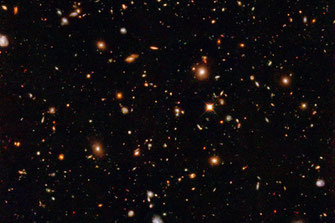Hume on the Design Argument
I face a dilemma. On the one hand, Philosophy is Awesome is supposed to take a neutral approach, telling you what I think are the strongest arguments on each side of a philosophical issue. I editorialize, but I try not to take sides in too partisan a fashion.
On the other hand, Hume's criticism of the Design Argument is such a world class take down that it's hard for me to do anything but say that it's a world class take down.

You can't see with the angle, but I photoshopped Hume's face on Rousey.
Anyone who wants to defend the Design Argument has to do a lot of work to overcome Hume's criticisms. He attacks it everywhere it can be attacked.

Hume's criticism of the first part of the argument stems from his views on how we reason about causes. He thinks we make causal inferences based on repeated observations of things that are paired together. We observe rabbits having sex, then we observe baby bunnies being born, over and over. After enough observations, when we observe baby bunnies being born, we infer they were caused by rabbits having sex, even if we didn't observe the rabbits having sex. We can extend our reasoning by analogy. If we discover babies of a newly discovered mammalian species, we can infer that they were created by adults of that species having sex, even if we have never observed adults of that species having sex. Obviously there is a limit to how far analogy works. If we uncover something that is very unlike a rabbit, say a tree or even a stuffed animal in the shape of a rabbit, we shouldn't infer that it was created through sexual reproduction.
Hume's problem with the Design Argument is that we have never witnessed the creation of this universe or any other -- just as we have never witnessed the creation of babies of the new species. This forces us to make an analogy between the Universe and Human Artifacts. But, unlike the analogy between one species of mammals and another, these two things are nothing like each other. As Hume says, "The dissimilitude is so striking, that the utmost you can here pretend to is a guess, a conjecture, a presumption concerning a similar cause."
Hume was especially critical that the Design Argument takes the process of a mind intending to create something -- a miniscule fraction of the universe -- as the model for the creation of the universe itself. Why not take the universe's creation to be modeled on other ways that things are created, like sexual reproduction or germination? The Design Argument claims that the right answer to the question below is A. But why shouldn't it be B or C?

In 2004, a philosopher started composing the analogy section of the SAT.
In 2005, the analogy section was removed.
Next, Hume argues that, even if the first part of the argument is somehow successful, the argument still fails.

Let's grant that the universe probably has a designer. Hume argues there are many ways that this designer could fall short of being God. For example, he argues against the claim that the qualities of designers can be seen in what they design. We can see why by considering trick shot videos.

Let's draft that guy!
You can waste a lot of time, as I just did, watching trick videos on YouTube. But it's hard to infer that the people making trick shots are actually very good at what they do. They have been selective, showing you the single time they made it. Hume did not have the benefit of YouTube, but he observed that you can't infer that the designer of something is skilled, because it could be the product of sheer repetition, blind luck, and copying the work of others. The creator of the world might be like a "stupid mechanic, who imitated others, and copied an art, which, through a long succession of ages, after multiplied trials, mistakes, corrections, deliberations, and controversies, had been gradually improving."
Even if the qualities of designers can be seen in what they design, it doesn't make sense to think God designed the universe. First, there is no guarantee that there is a single designer of the universe. Most human artifacts are designed by committee; if we are making an analogy to human artifacts, why not think that the universe was designed by committee? Second, the universe doesn't seem to be awesome enough to license an inference to an infinite being. We only can seen a small portion of the universe; there seem to be problems with what we do see; and for all we know it is finite. It is unwarranted to infer that the cause of this apparently finite, imperfect thing, is a perfect God.
While Hume's criticisms of the Design Argument have been historically important, they may not undermine the emotional argument based on our amazement at finding ourselves in this universe (or really, finding ourselves in any universe). Next, we'll look at a modern version of the Design Argument which attempts to show that contemporary physics supports this emotional appeal: the Fine-Tuning Argument.
Copyright 2019 by Sam Ruhmkorff

